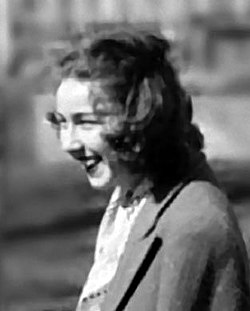Flannery O'Connor Quote
It is generally supposed, and not least by Catholics, that the Catholic who writes fiction is out to use fiction to prove the truth of the Faith, or at the least, to prove the existence of the supernatural. He may be. No one certainly can be sure of his low motives except as they suggest themselves in his finished work, but when the finished work suggests that pertinent actions have been fraudulently manipulated or overlooked or smothered, whatever purposes the writer started out with have already been defeated. What the fiction writer will discover, if he discovers anything at all, is that he himself cannot move or mold reality in the interests of an abstract truth. The writer learns, perhaps more quickly than the reader, to be humble in the face of what-is. What-is is all he has to do with; the concrete is his medium; and he will realize eventually that fiction can transcend its limitations only by staying within them.
It is generally supposed, and not least by Catholics, that the Catholic who writes fiction is out to use fiction to prove the truth of the Faith, or at the least, to prove the existence of the supernatural. He may be. No one certainly can be sure of his low motives except as they suggest themselves in his finished work, but when the finished work suggests that pertinent actions have been fraudulently manipulated or overlooked or smothered, whatever purposes the writer started out with have already been defeated. What the fiction writer will discover, if he discovers anything at all, is that he himself cannot move or mold reality in the interests of an abstract truth. The writer learns, perhaps more quickly than the reader, to be humble in the face of what-is. What-is is all he has to do with; the concrete is his medium; and he will realize eventually that fiction can transcend its limitations only by staying within them.
Related Quotes
She might not have read many books. But when she reads a book, she swallows the very words. If you open the books on her shelves, you will find that the front and back covers encase white pages.
About Flannery O'Connor
O'Connor was a Southern writer who often wrote in a sardonic Southern Gothic style. She relied heavily on regional settings and grotesque characters, often in violent situations. In her writing, an unsentimental acceptance or rejection of the limitations, imperfections or differences of these characters (whether attributed to disability, race, crime, religion or sanity) typically underpins the drama.
O'Connor's writing often reflects her Catholic faith, and frequently examines questions of morality and ethics. Her posthumously compiled Complete Stories won the 1972 U.S. National Book Award for Fiction and has been the subject of enduring praise.
